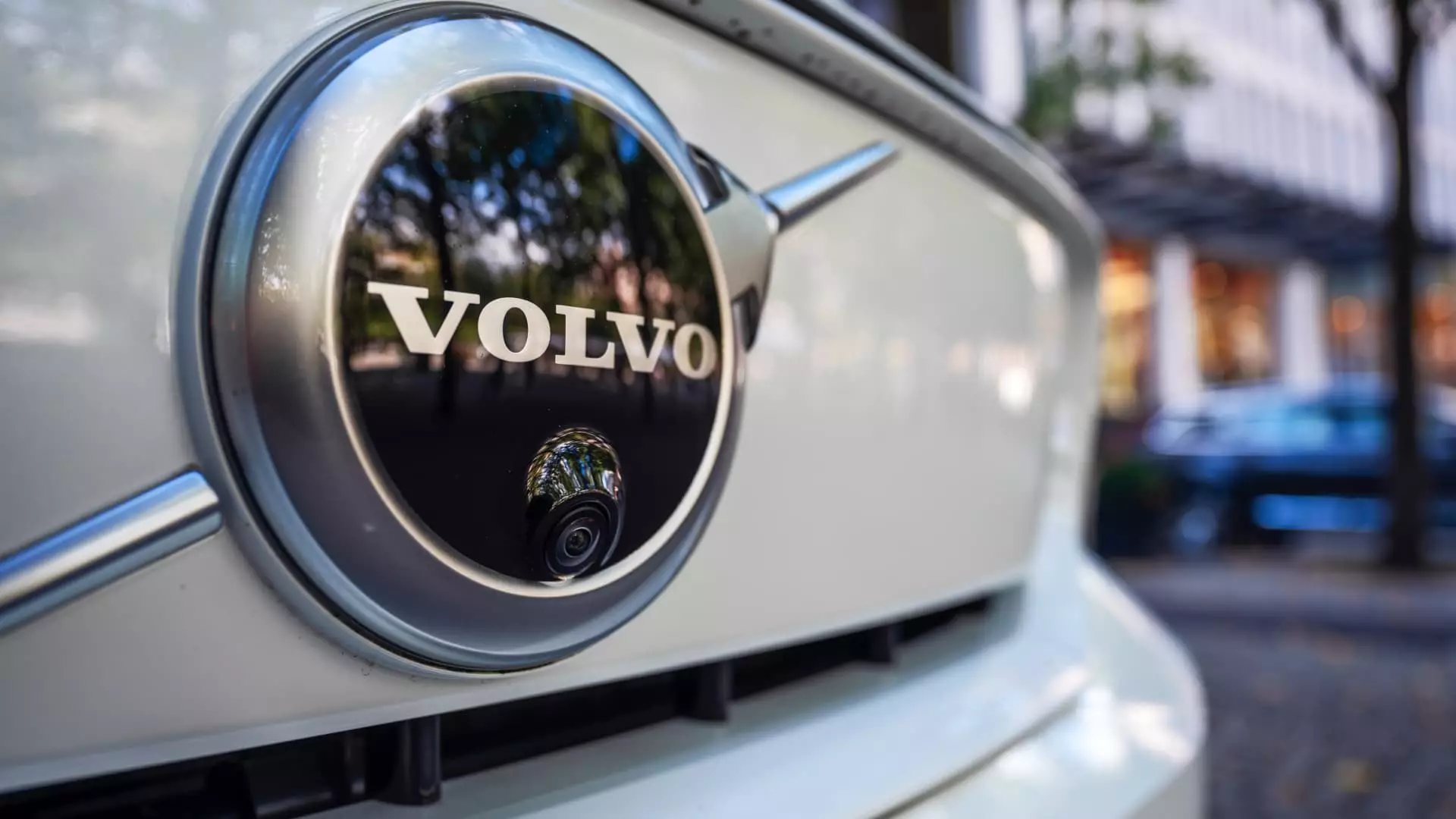Volvo Cars, the esteemed Swedish automobile manufacturer historically synonymous with safety and innovation, is finding itself at a crossroads. The recent announcement of job cuts affecting around 3,000 employees reflects not just a strategic pivot but an existential crisis fueled by fierce market dynamics and the heavy blanket of economic uncertainty. This drastic measure, which constitutes approximately 15% of the company’s office-based workforce, stirs a complex interplay of emotions — disappointment mixed with a begrudging acceptance that the automotive landscape is evolving faster than many can adapt.
Controversy often arises in the wake of such decisions. Håkan Samuelsson, Volvo’s president and CEO, has framed this initiative as a necessary recalibration—a means to reinforce resilience in a tumultuous market. However, one cannot ignore the human cost embedded in these corporate maneuvers. The announcement positions the business as a pragmatic player seeking survival in the face of unprecedented pressures, yet it begs the question: at what cost to the employees who have spent years dedicating themselves to the company’s vision?
The Impact of Global Trade Dynamics
As tariffs loom overhead like dark clouds on the horizon, Volvo Cars finds itself navigating treacherous waters — waters filled with uncertainty due to fluctuating trade policies and geopolitical tension. U.S. President Donald Trump had threatened to impose crippling tariffs on European imports, including automobiles, causing shockwaves through the automotive sector. His decision to delay these tariffs offers a fleeting respite, but the threat remains ever so tangible, underscoring a volatile market that could change on a dime.
In this climate, Volvo’s initiatives may come off as both ills and musts. The global automotive industry’s reliance on interconnected supply chains means that any disruption echoes through the entire sector, impacting job security and manufacturing capabilities alike. As a company that has long prided itself on embracing innovation and technological advancements, Volvo must tread carefully. Withdrawing financial guidance for 2025 and 2026 amplifies concerns—many fear this signals a retreat from longer-term goals in favor of immediate survival.
The Electric Vehicle Dilemma
At a time when many companies are aggressively pursuing electric vehicle (EV) shifts, Volvo’s recent concessions regarding its electric aspirations showcase a tension between ambition and reality. While the company had previously set its sights on becoming a fully electric brand, its retreat from unequivocal targets indicates an unpredictable market where consumer demand isn’t developing at the anticipated pace. The dialogue surrounding its plans has shifted from a forward-looking boldness to a cautionary tone, aligning with the sentiment of many in the automotive field that pragmatism must govern future strategies.
This reconfiguration in vision underscores a fundamental aspect of corporate strategy: adaptability. However, it raises a significant dilemma: Does prioritizing immediate cost-cutting measures ultimately stifle innovation and delay the very transition that could ensure long-term sustainability? Treating cutting-edge technology as a secondary consideration risks dampening the flame of creativity and exploration that has historically driven success in highly competitive environments.
Challenging Corporate Ethics
As the hammer falls on thousands of jobs, one also has to question the ethical implications behind such decisions in the corporate world. The narrative often shifts to shareholder value and the bottom line, but it should equally encompass the impact on employees’ lives and communities. How does a company justify slashing its workforce while touting long-term ambitions? An organization like Volvo, revered for its commitment to safety and security, must confront these contradictions head-on.
For a more transparent approach, Volvo can redefine success to include human capital alongside financial objectives. Acknowledging the sacrifices made by its workforce can pave the way for a more holistic corporate culture. In this transitional phase, it is imperative for management to foster an environment that keeps employee morale high, even amidst cuts. Instituting support systems and providing retraining opportunities could showcase a commitment to an ethical framework that values individuals as much as profit.
Such difficult conversations regarding corporate responsibility and workforce management are vital in shaping the future of businesses, especially in an age where social consciousness is becoming increasingly paramount.
Through the lens of these transformations at Volvo, we see a narrative that resonates far beyond the automaker itself; it metaphorically speaks to the broader industrial ethos in an era ripe with challenges and opportunities equally. As corporations march towards ambitious futures fraught with risk, success will hinge not only on adaptability and survival but also on responsibility and integrity.

Leave a Reply